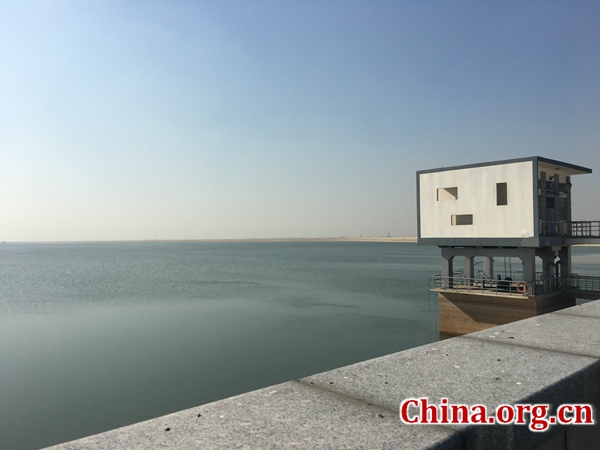The 19th National Congress of the Communist Party of China has set the guideline for China’s development and renewed its commitment to an open economy, which has great significance for the world, China’s top publicity official said on Thursday.
![Huang Kunming, head of the Publicity Department of the CPC Central Committee, speaks on Thursday in Beijing about China's elevated role in the world following the success of last month's 19th CPC National Congress. Leaders and former leaders from around the world attended 'The 19th CPC National Congress: Implications [Photo/China Daily] Huang Kunming, head of the Publicity Department of the CPC Central Committee, speaks on Thursday in Beijing about China's elevated role in the world following the success of last month's 19th CPC National Congress. Leaders and former leaders from around the world attended 'The 19th CPC National Congress: Implications [Photo/China Daily]](http://images.china.cn/attachement/jpg/site1007/20171117/f44d307d90cc1b7878ae01.jpg) |
|
Huang Kunming, head of the Publicity Department of the CPC Central Committee, speaks on Thursday in Beijing about China’s elevated role in the world following the success of last month’s 19th CPC National Congress. Leaders and former leaders from around the world attended “The 19th CPC National Congress: Implications [Photo/China Daily]
|
Huang Kunming, head of the Publicity Department of the CPC Central Committee, made the remarks in his keynote speech at an international think tank symposium in Beijing.
During the symposium, former top government leaders from countries including Japan, Pakistan and France spoke highly of the significance of the CPC’s 19th National Congress, saying that China has made great contributions to the world through programs such as the Belt and Road Initiative and products such as its high-speed railways.
China’s development will bring numerous opportunities for the whole world, and other countries are welcomed to board the fast train of China’s development, said Huang, who is also a member of the Political Bureau of the CPC Central Committee.
Huang was elected a member of the Political Bureau at the First Plenary Session of the 19th CPC Central Committee last month in his first public speech at an international event since then.
The congress has set the guiding role of Xi Jinping Thought on Socialism with Chinese Characteristics for a New Era, Huang said, adding that Xi Jinping Thought is the fundamental guide for international communities to understand China.
Huang said that Xi, who was endorsed by the whole Party and is loved by the people for his political wisdom and leadership capability that was demonstrated during the past five years, has become an influential global leader.
Noting that the congress highlighted China’s proposal to build a community of shared future for humankind, Huang said China will stick to its path of peaceful development and push for developing a new type of international relations on the principle of mutual trust, justice and mutual benefit.
China will proactively promote cooperation through the Belt and Road Initiative, support a multilateral trade system and continue to maintain and contribute to economic globalization, the publicity leader told the symposium.
The congress also highlighted the importance of fighting corruption with the promise of having zero tolerance toward corrupt activities, Huang said. He said it is not an easy task for the world’s largest political party, with more than 89 million members.
The symposium, themed as “The 19th CPC National Congress: Implications for China and the World”, attracted hundreds of people from around the world, including incumbent and former political figures, politics analysts and think tank researchers.
Former Japanese prime minister Yasuo Fukuda said at the symposium that China has made remarkable achievements in the past decades, during which the country developed its high-speed railway system, with a total length of 20,000 kilometers already built.
Fukuda spoke highly of Xi’s proposal to build a community of shared future for mankind, saying that it means China’s development will not impose any threat to other countries.
Shaukat Aziz, former prime minister of Pakistan, said the Belt and Road Initiative, put forward by Xi in 2013, will bring historic and substantial changes to the world as it “provides new connectivity, open markets, increases trade and creates jobs”.
Aziz told the symposium that the initiative has benefited many countries, including Pakistan, since it has improved the infrastructure and production capacity for developing countries.
Dominique de Villepin, former French prime minister, said that the 19th CPC National Congress “opened a new era”, which gives “strong signal” of continuity in the Chinese leadership.
In his speech, De Villepin recalled Xi’s speech at the Davos World Economic Forum in January, saying that it reminded the world of the benefits of economic globalization and inclusive growth.
Mentioning that China and France opened a cargo rail line between Wuhan in Central China and French city of Lyon last year, De Villepin said the Belt and Road Initiative has yielded numerous fruits on the basis of mutual trust and equality.
read more


![Huang Kunming, head of the Publicity Department of the CPC Central Committee, speaks on Thursday in Beijing about China's elevated role in the world following the success of last month's 19th CPC National Congress. Leaders and former leaders from around the world attended 'The 19th CPC National Congress: Implications [Photo/China Daily] Huang Kunming, head of the Publicity Department of the CPC Central Committee, speaks on Thursday in Beijing about China's elevated role in the world following the success of last month's 19th CPC National Congress. Leaders and former leaders from around the world attended 'The 19th CPC National Congress: Implications [Photo/China Daily]](http://images.china.cn/attachement/jpg/site1007/20171117/f44d307d90cc1b7878ae01.jpg)
